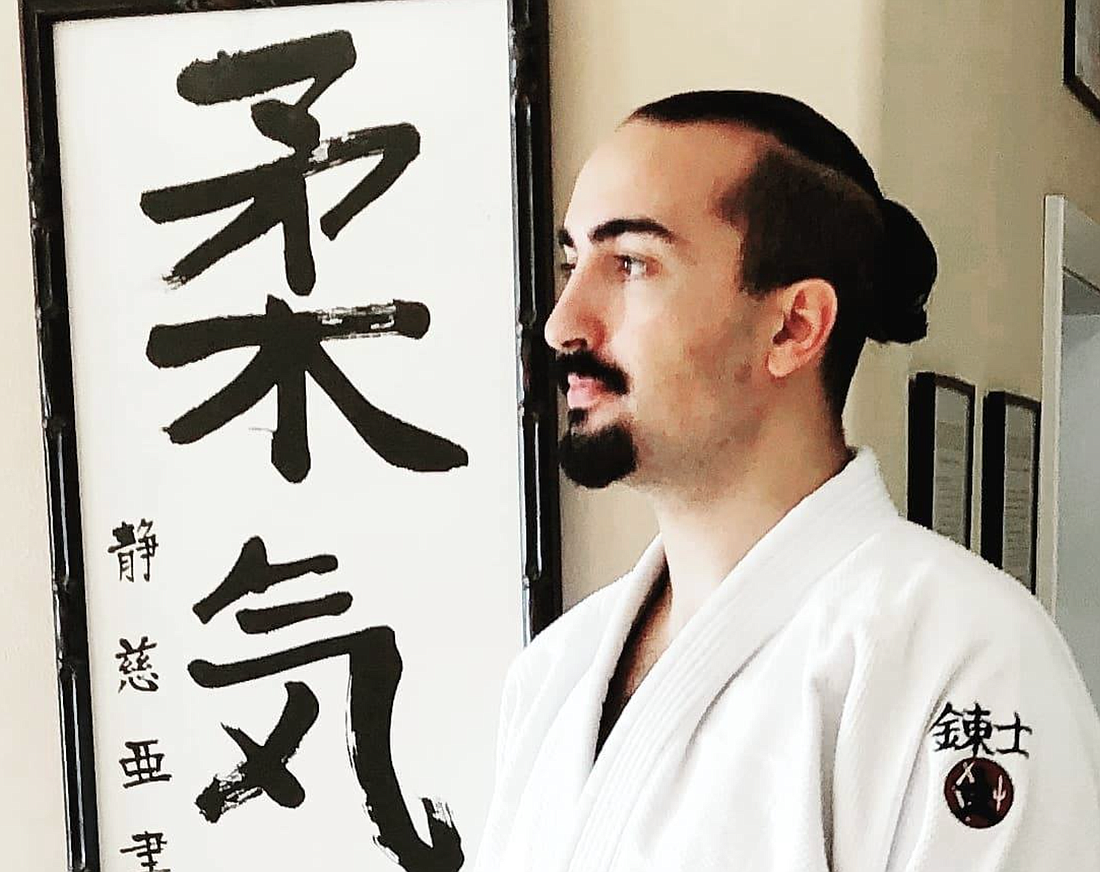- December 15, 2025

What inspired you to write the book?
I was motivated to write "The Founding of Jujutsu & Judo In America" for two primary reasons.
I’ve always been both shocked and a bit disappointed at the incredibly muted level of knowledge that most martial arts students, including senior level practitioners, have about the foundations of the very martial art they practice.
This is disappointing on multiple levels. First, as the famous quote by Robert Heinlein expresses, “A generation which ignores history has no past and no future.”
Additionally, this unique history is a beautiful and intriguing one, even for the non-martial artist. It is worth preserving and understanding. Without a basic understanding of the foundations of the art, myths develop and become crystalized as “fact" in the pop culture of the art.
I wanted to write a book that would both be enjoyable and informative on the development of the martial arts — jujitsu and judo specifically — in the United States of America.
Additionally, the largely untold story of many of the art’s founding fathers in America is worth preserving. In my estimation, it would be an absolute tragedy to not record and preserve the intriguing stories of these incredible martial artists — which include Japanese sensei, American presidents, American military men pioneers, Olympians, etc.
What is your book about, and what is your target audience?
As the title suggests, the book centers on the roots of how the Japanese art of self-defense was brought from Japan to the United States. It begins with the first known encounter between an American and the art of jujutsu (sometimes spelled jujitsu or jiu-jitsu). We move forward in time to discuss notable events and personalities, including little known facts, such as President Theodore Roosevelt studying jujitsu/judo and having a dojo in the White House. Letters regarding his practice of martial arts, from the presidential archives and other sources, are included. We highlight the role of World War II and how American servicemen coming back from Japan played a massive role in the art having a permanent place in the fabric of America.
The book also includes five extended interviews with American jujitsu and judo pioneers.
The target audience is layered in some respects. Most clearly it would be for those interested in martial arts and the history of martial arts in the United States. However, I would say that it would be equally appealing to anyone interested in sports history or those intrigued by unique stories of American cultural development.
From a local perspective, given that I’m a long time Palm Coast resident and run the longest running school of self-defense in Flagler County — the Jukido Academy — I would, of course, love the support of Flagler for one of its own!
What is joyful about writing, and what is painful or frustrating?
I’m a history nerd. I’m also life long martial arts nerd. Putting both of those interests together made for an enjoyable experience.
Inevitably, when one tackles anything significant, there will always be challenges. The painstaking research required to provide evidence behind historical claims can be grueling.
The most challenging piece as a writer is to make “executive decisions” about what elements of the history are essential and which aren’t. The historian in me always wants more. However, the practical side of me, who actually wants to keep the reader engaged, has to decide how much or how little to address certain topics. Inevitably, you could always say a bit more about a particular person, topic, or event but you have to know when to “move on” to keep the flow of the story going.
What other authors have influenced you?
Donn Draeger was among the very first “real” scholars of martial arts literature. While his work isn’t always easy to read, it is highly informative and set the standard for all future martial arts scholarship written in the English language. There are others as well: John Stevens and Ryan Holiday.
What is the best advice you've ever received about writing?
Writing and thinking are indistinguishable. Writing is thinking. To write well is to think clearly. That's why it's so hard.
While that isn’t exactly advice, that notion has helped me both as the author of this book, with articles I’ve written in the past, and my own private writing habits. When I need to “work something out,” writing, even if privately, is massively beneficial to organizing one’s own thinking. Like authentic martial arts itself, it affords you the opportunity to discipline your mind.
How can readers get a copy?
You can search my name or you can search the title of the book, "The Founding of Jujutsu & Judo In America," on Amazon. Soon we’ll also have copies at my dojo, the Jukido Academy of Self-Defense, here in Palm Coast.
As of this moment, it is number 1 in new releases under the categories of Martial Arts and also in Sports History.